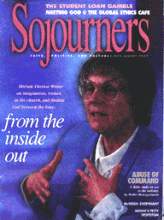Criticism of Twelve Step programs is not new; what makes Linda Mercadante's Victims and Sinners unique is her theological perspective. As mainstream churches increasingly turn to the recovery movement as a model, Mercadante believes a profound theological debate is occurring around such issues as sin, grace, and free will.
Formed in 1935, AA has its origins in the Oxford Group, a religious movement that began in the early century as a reaction to the social gospel. Although AA has downplayed this early connection, both its founders (Robert Smith and Bill Wilson) were members, and many of the movements premises are now familiar to AAers: Conversion comes through surrender; sin derives from self-centeredness; and evangelism consists in personal life-changing.
Known for its theological simplicity, the Oxford Group program was based on four absolutes: honesty, purity, unselfishness, and love. Members met in small groups in which personal confession played a central role. Experience took precedence over intellect ("It works!"), and members were expected to humble themselves through making a moral inventory. While the program appealed largely to the wealthy, help was available to all ("No one has sunk too low").
Many of those helped by the Oxford Group were heavy drinkers. Wilson, however, believed its demands were too much for alcoholics, whom he saw as victims of a permanent illness and thus in a special category. So while the Oxford Group emphasized complete victory, AAers focused more on limitation, expecting less of themselves andas Mercadante points outperhaps even of God.
Read the Full Article
